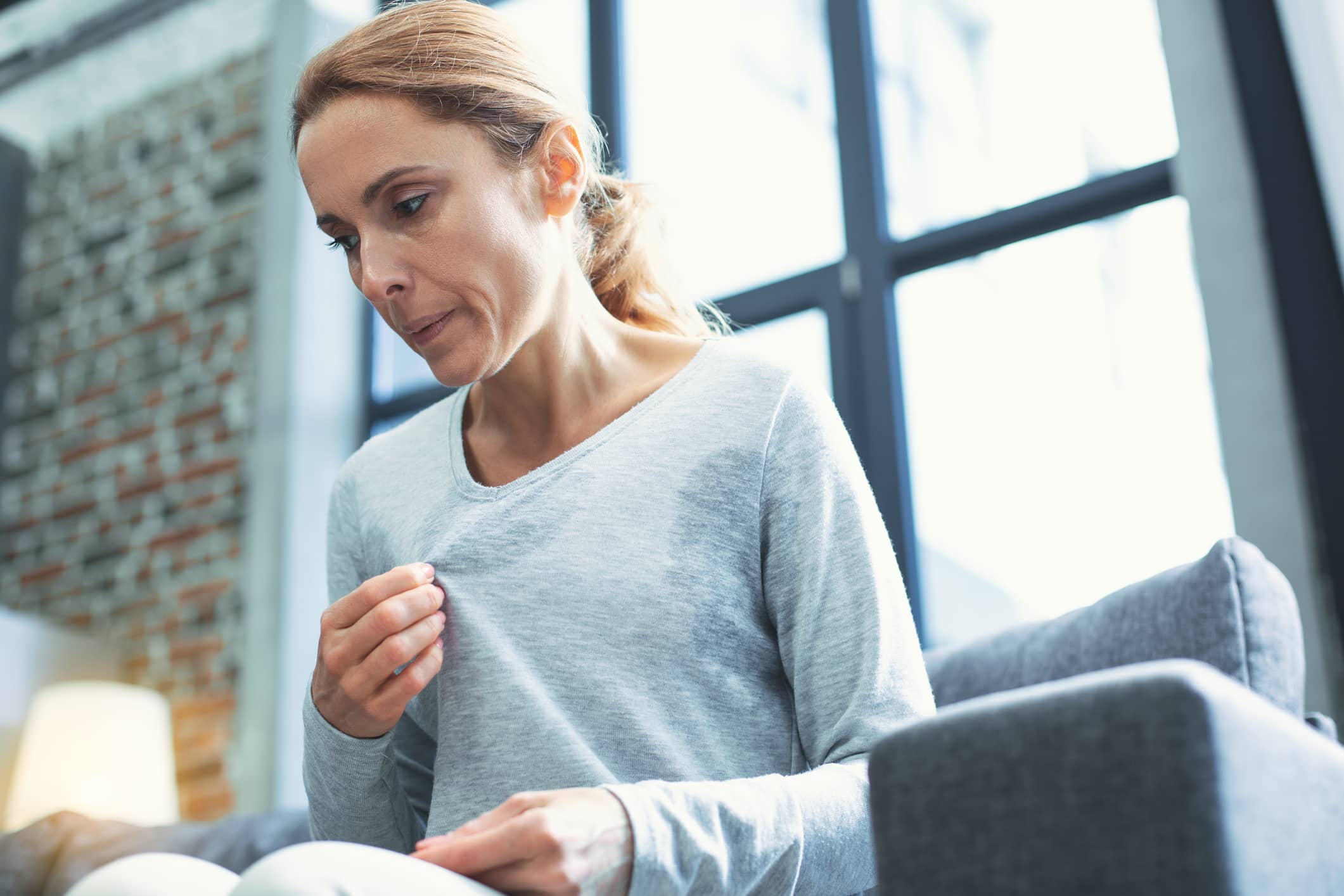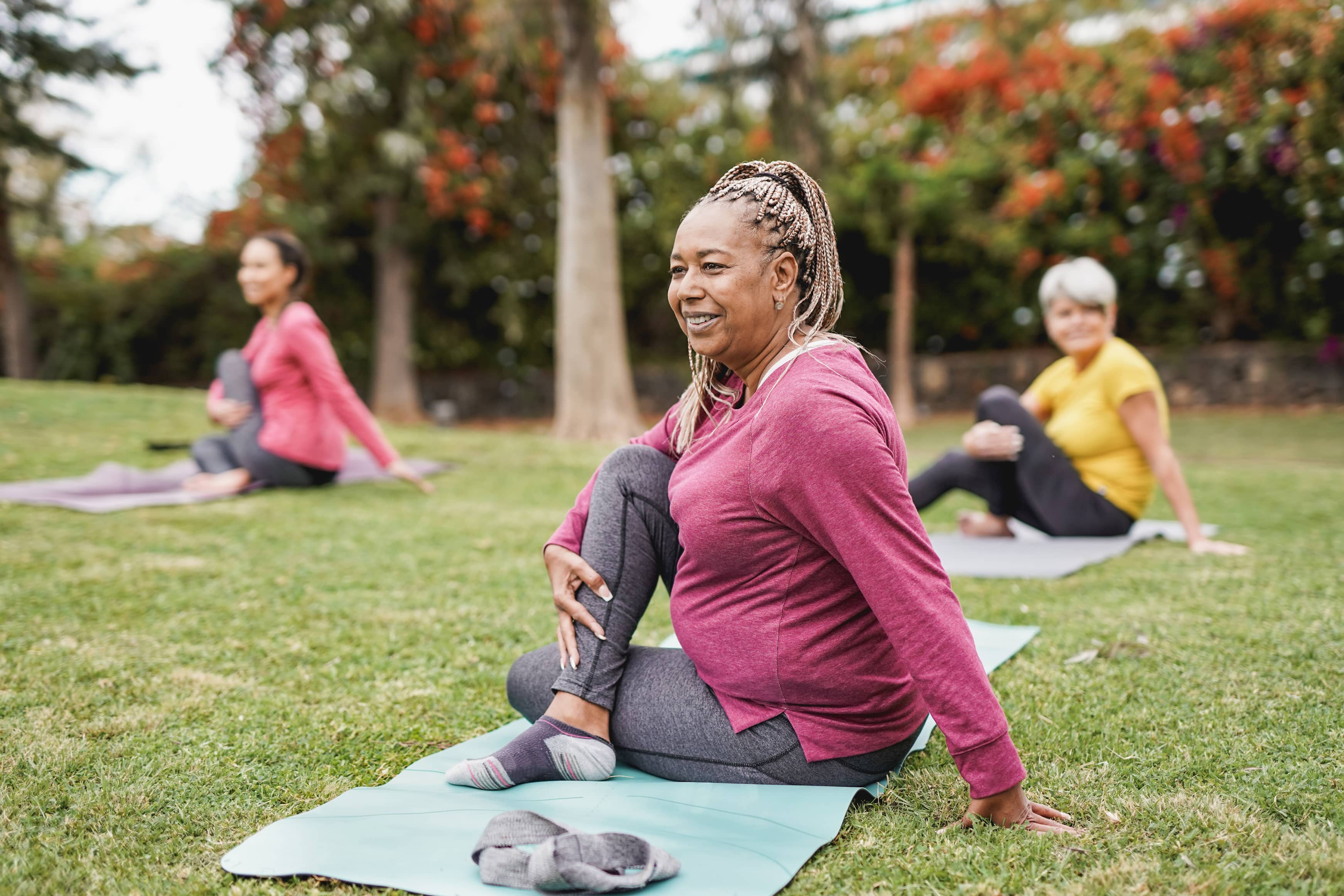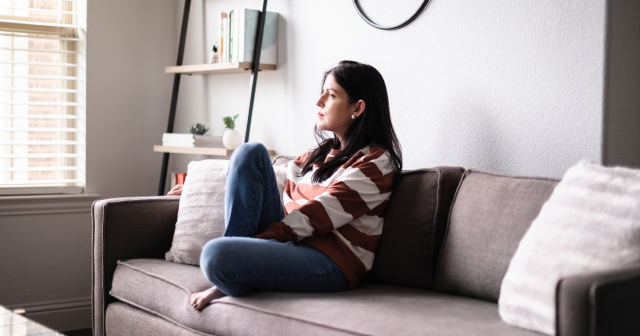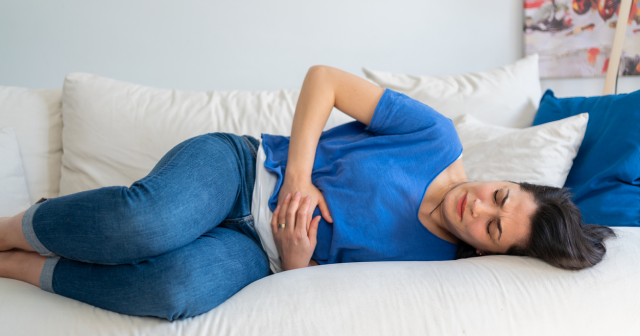How does menopause affect your mental health?
The menopause, when your periods stop and you can no longer get pregnant, can bring on various physical symptoms. It can also cause symptoms related to your mood and mental health.
One of these symptoms is anxiety – a feeling of unease, worry or fear. Many people get anxiety in the menopause, as well as during the time leading up to it (perimenopause) and afterwards (postmenopause).
So let’s look at why you might get menopause anxiety, as well as when to see a doctor and what you can do to feel better.
What causes anxiety during the menopause?
Several things can play a part in triggering feelings of anxiety during the perimenopause, menopause and postmenopause.
As with other common menopause symptoms, one of these factors is your changing hormone levels, particularly the hormone oestrogen. Oestrogen can affect many parts of your body, including your brain and emotions.
When you’re having periods, your oestrogen levels go up and down during each menstrual cycle. But in the perimenopause, your oestrogen starts to drop, and eventually settles at a low level postmenopause (usually a couple of years after your periods have stopped).
Levels of the hormone progesterone change during menopause, too. Progesterone is thought to cause premenstrual syndrome (PMS), of which anxiety can be a symptom. But if you’ve had PMS, it doesn’t necessarily mean you’ll get menopause symptoms.
Anxiety can also be triggered by other menopause and perimenopause symptoms, such as hot flushes, dizziness, heart palpitations and trouble sleeping (insomnia). These symptoms can make you feel embarrassed, irritable or very tired, and increase feelings of worry.
Many people also find they’re dealing with major life changes around the time of the perimenopause and menopause. Things such as divorce, children leaving home, health issues or parents becoming frail and needing care can be extra sources of anxiety and stress at this time.
There’s also thought to be a link between the perimenopause and depression.
Read about some unusual symptoms of menopause.
Hot flushes and anxiety
Hot flushes are a common menopause symptom. They can start during the perimenopause and continue for several years postmenopause. Some people have them every now and again, while others have them a lot.
The main sign of a hot flush is a sudden feeling of heat that spreads through your body. You might also have:
- reddened (flushed) or pink skin, particularly on your face
- sweating
- heart palpitations
- feelings of anxiety, tension or fear
- chills afterwards
Hot flushes can be uncomfortable and embarrassing, so they can be another cause of nervousness and anxiety. They can also happen at night (night sweats), which can also affect your mood if it stops you from sleeping.

Can menopause cause anxiety attacks?
If you’re dealing with troublesome menopause symptoms, or you’re very worried about your symptoms, it’s possible that you could have an anxiety attack or panic attack. This is more severe than feelings of anxiety and worry.
During a panic attack, you get a sudden rush of symptoms – physical and mental – which can include a fast heartbeat, sweating, feelings of dread and feeling faint.
Panic attacks sometimes only last a few minutes, but they can go on for up to an hour. Read more about how to find out if you’re having a panic attack.
Panic attacks can be very frightening and worrying, but it’s important to remember that they aren’t dangerous or harmful.
If you’re having a panic attack:
- don’t fight the feelings
- try to stay where you are
- breathe slowly and deeply
- think positive and relaxing thoughts
- remind yourself that it will pass and you’ll feel better soon
When to see a doctor about menopause and anxiety
Symptoms of a panic attack can be caused by other conditions and problems, so it’s important to get medical help if you’re not sure what’s causing your symptoms. If you have chest pains, trouble breathing or feel very dizzy, you should call an ambulance or get emergency medical help.
You should also call an ambulance if you feel you’re at risk of hurting yourself or other people, or you’ve seriously harmed yourself, such as by taking a drug overdose.
You should book an appointment with your doctor if:
- your feelings of anxiety are affecting your daily life
- things you’ve tried to help aren’t working and your symptoms aren’t improving
- you’d like to get a referral for psychological therapy
Anxiety in menopause treatment
If you’re having menopause anxiety, there are several things you can try, from medical treatments to self-care measures.
Hormone replacement therapy (HRT)
Hormone replacement therapy (HRT) can be very effective in treating menopause symptoms, particularly hot flushes, which can cause anxiety.
It works by replacing the hormones you lose during menopause and is available as tablets, skin patches, implants or a gel.
HRT isn’t suitable for everyone, though, including if you have certain health conditions, so speak to your doctor for advice.
Regular exercise
Keeping active can help with menopause symptoms and improve your mood. Exercise releases endorphins, your body’s ‘feel-good’ chemical, as well as reducing your levels of the stress hormones adrenaline and cortisol.
Regular exercise also boosts your metabolism, to help with any menopause weight gain, which may help with feelings of depression and irritability.

Relaxation
Learning how to relax can be important in helping to ease anxiety. Many people find a relaxing form of exercise helpful, such as yoga, Pilates or tai chi.
Breathing exercises can also aid relaxation. When you’re stressed, your breathing tends to become faster, more shallow and irregular. With simple breathing exercises, you can learn how to slow your breathing to a regular pace and relax.
Try these breathing exercises for instant calm.
Diet changes
If you often feel anxious, it can be a good idea to take a look at what you eat. For example, eating lots of sugary foods can make your blood sugar rise sharply and then fall quickly, which can cause mood changes and irritability.
If you’ve been having anxiety attacks, cutting down on caffeine and alcohol can be a good idea, as these can make panic attacks worse.
It’s been suggested that adding more phytoestrogens to your diet may help with menopause symptoms. These are plant substances that can have a similar effect to oestrogen. There isn’t much proof about how effective they are, though some research suggests they may be helpful if you have lots of hot flushes.
If you want to try increasing the amount of phytoestrogens you eat, the two main types are called isoflavones and lignans. Isoflavones are found in soya – such as tofu, soya beans and soya milk – and chickpeas, while lignans are found in foods such as flaxseeds, bran and whole cereals.
Complementary therapies
Complementary therapies such as massage and aromatherapy can help you relax and reduce feelings of anxiety. They may also help you sleep better.
Cognitive behavioural therapy (CBT)
Cognitive behavioural therapy (CBT) is a talking therapy that can help with feelings of anxiety or low mood. It teaches you to break down problems or anxieties into manageable parts and change how you think about them, to improve the way you feel.
Your doctor might be able to refer you for a course of CBT, or you can pay to see a private therapist. There are also lots of CBT books and apps available, and it can be done in a group.
Antidepressants
If your doctor thinks they’re suitable for you, they may prescribe antidepressants as menopause anxiety medication. These usually come as a tablet. Your doctor will probably start you on the lowest dose, to see how you get on.
Your health questions answered
Why do I get anxiety in the morning during the perimenopause?
Answered by: Healthily's medical teamYou can feel anxious in the morning due to anxiety itself, or because of another menopause symptom. For example, you might have night sweats that mean you aren’t able to sleep properly, or wake up with morning stiffness or joint pain (another common menopause symptom).
Can HRT cause depression and anxiety?
Answered by: Healthily's medical teamLots of people take HRT for their menopause symptoms and it can be very effective. However, if you’re taking progestogen (similar to progesterone), side effects can include mood changes. It’s important to know about the benefits and risks before deciding to have HRT, so speak to your doctor for advice.
Key takeaways
- anxiety is a common menopause symptom
- it may be triggered by hormonal changes, other menopause symptoms, such as hot flushes, or stressful life events
- hormone replacement therapy (HRT) can be an effective treatment
- lifestyle changes, such as regular exercise and relaxation, can also help
see a doctor if you feel anxiety is affecting your daily life







